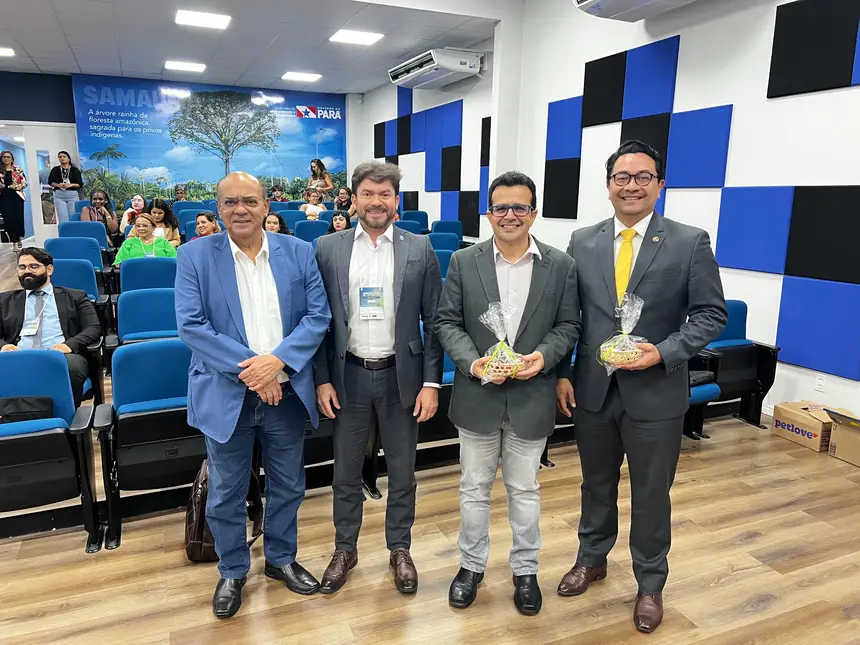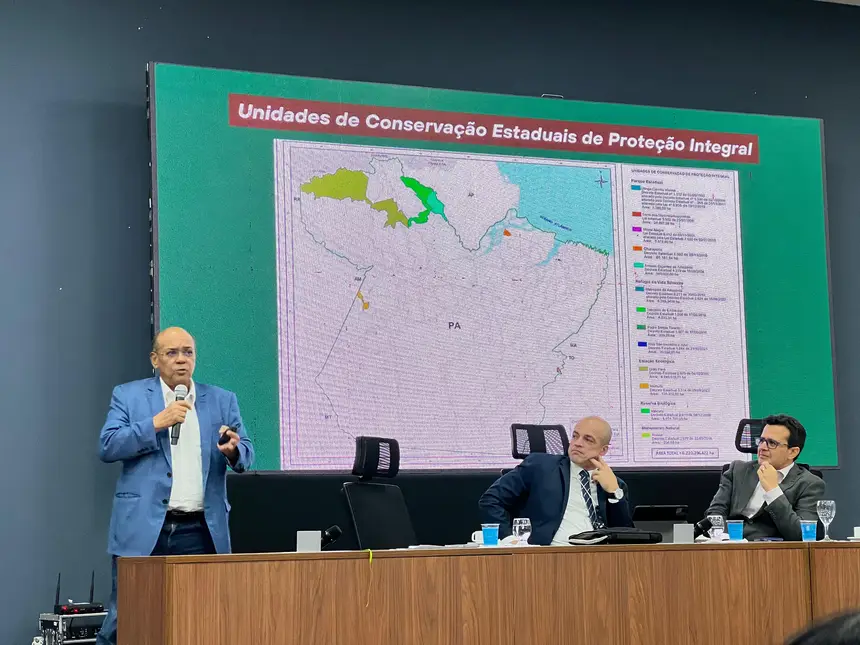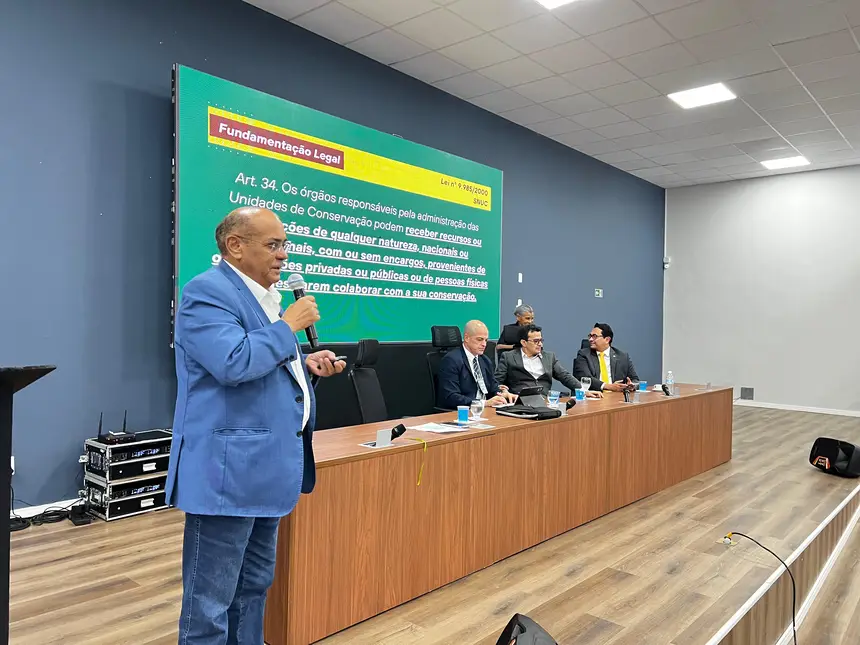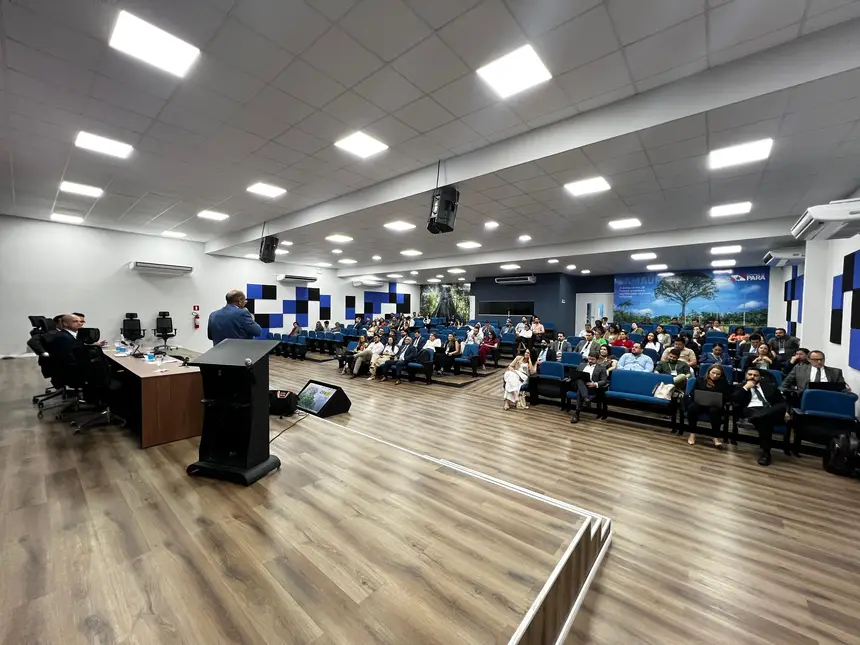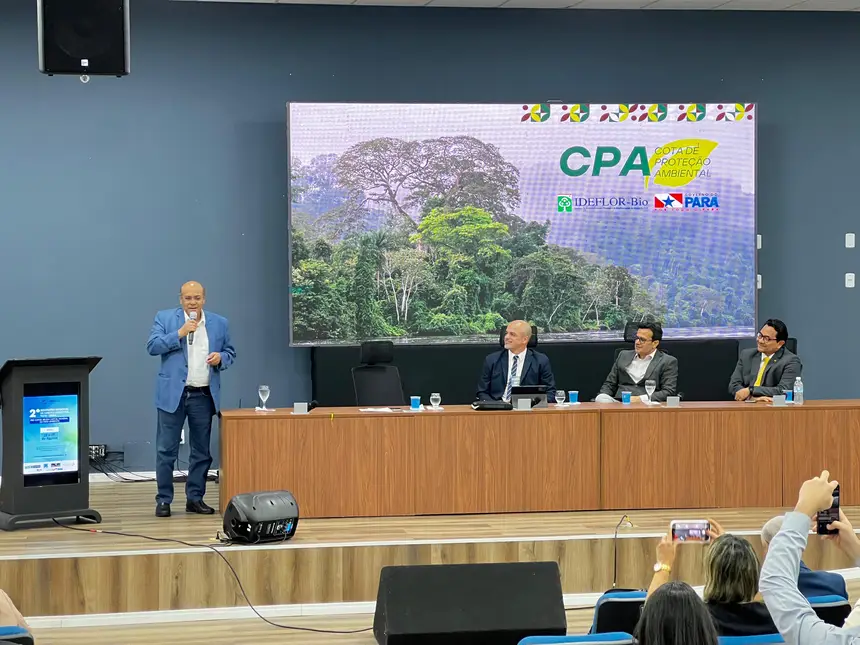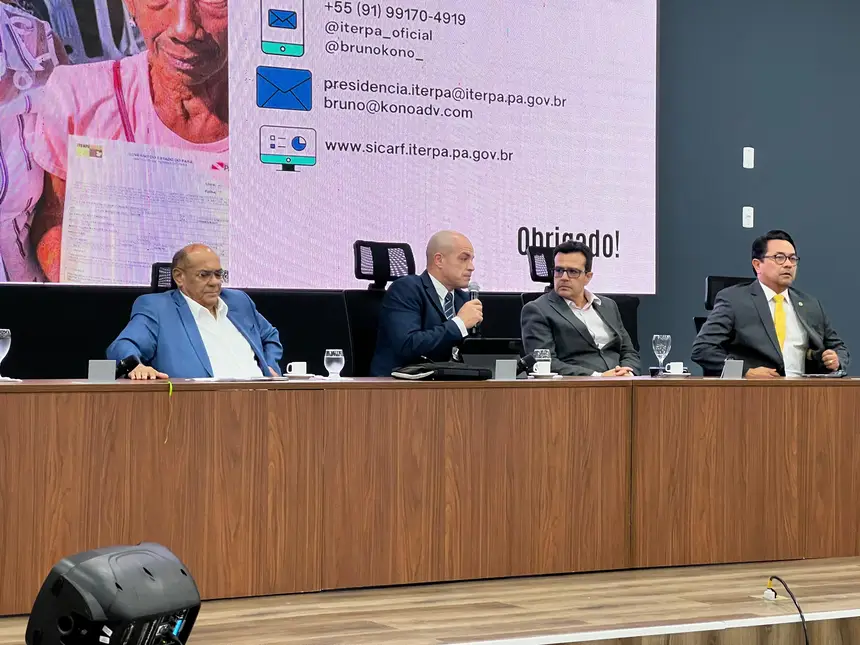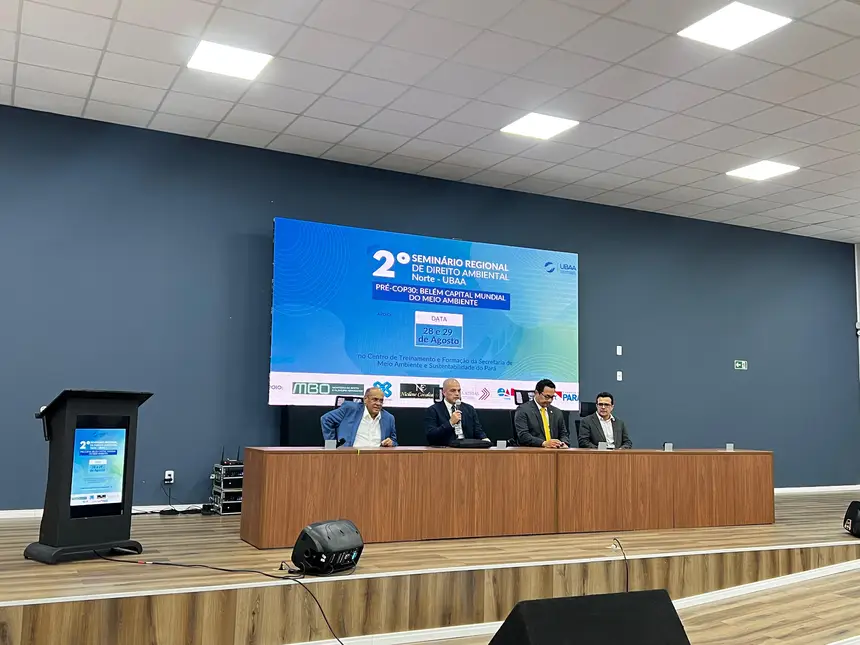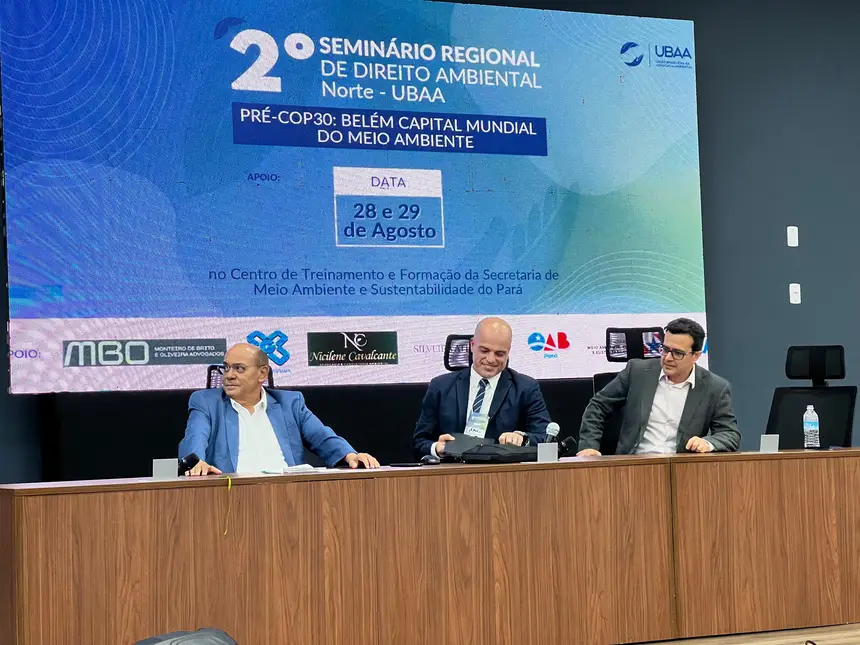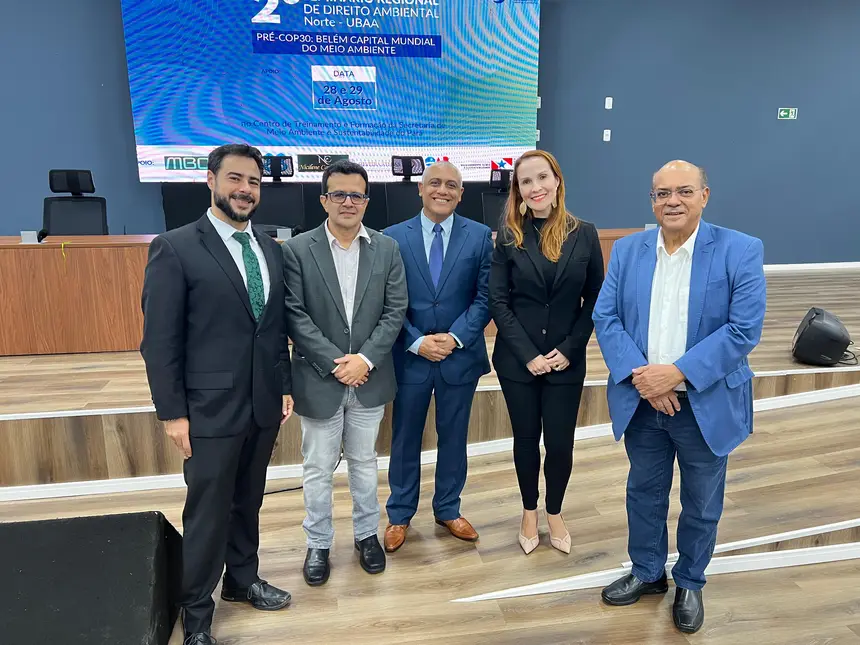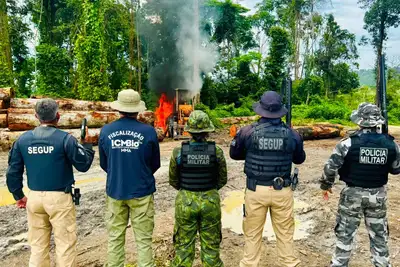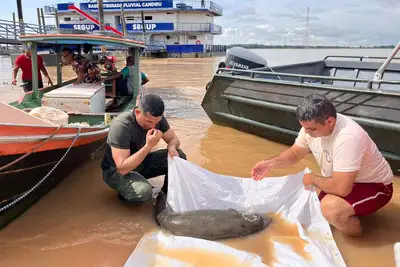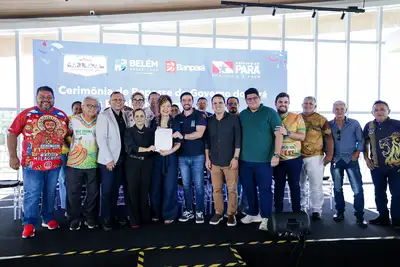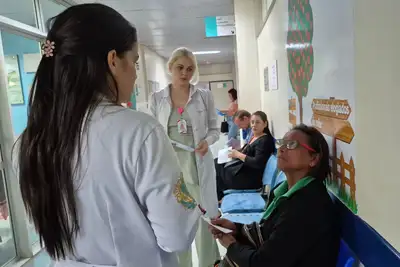Ideflor-Bio presents Environmental Protection Quota as an innovative model for land regularization and forest preservation
The environmental instrument of the Government of Pará was highlighted at the 2nd Regional Seminar on Environmental Law, held in Belém, and reinforces the state's leadership in the COP30 agenda
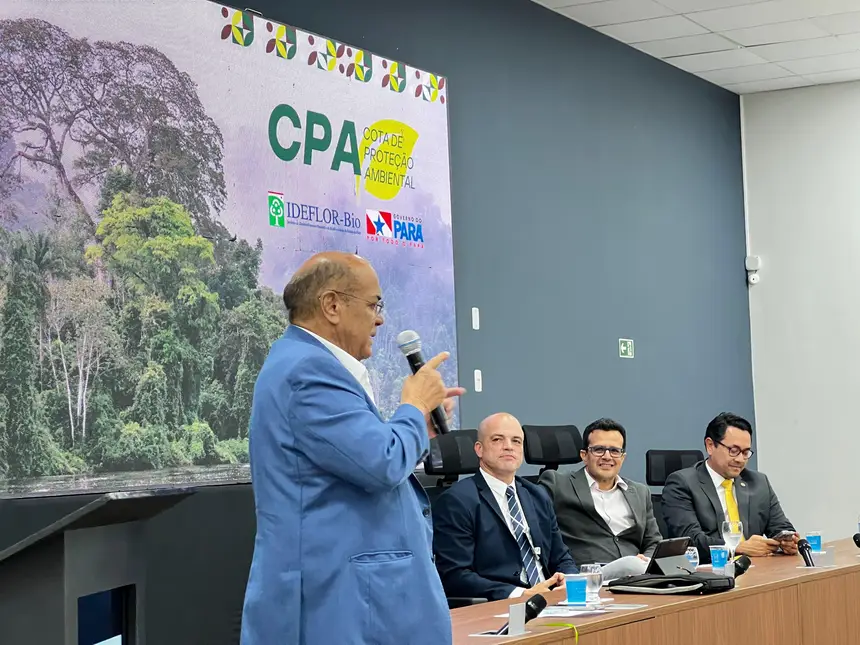
The Government of Pará, through the Institute of Forest Development and Biodiversity (Ideflor-Bio), presented this Thursday (28) the Environmental Protection Quota (CPA), during the 2nd Regional Seminar on Environmental Law, held at the Training and Development Center of the State Secretariat for the Environment and Sustainability (Semas), in Belém. The event, promoted by the Brazilian Union of Environmental Advocacy (UBAA), has the theme "Pre-COP30: Belém, World Capital of the Environment" and runs until this Friday (29), bringing together authorities, jurists, and specialists in environmental public policies.
During the panel "Land and Environmental Regularization", the president of Ideflor-Bio, Nilson Pinto, highlighted the CPA as one of the state's strategic instruments to reconcile rural production with forest conservation, enabling the regularization of environmental liabilities while promoting the continuous financing of the 29 State Conservation Units (UCs).
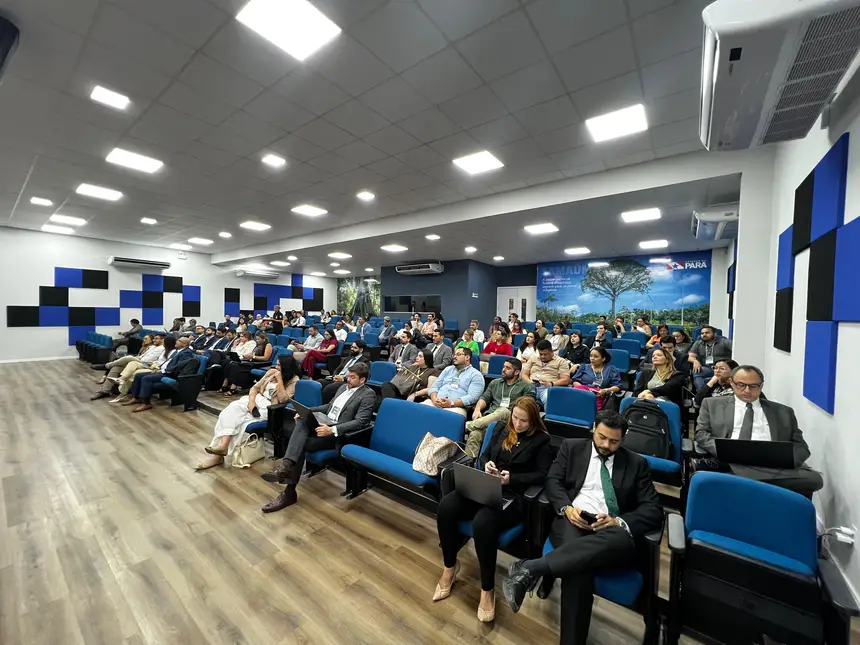
“Economic production finances environmental protection. And environmental protection enables economic production. This is the logic of a policy that has the power to unite two historical interests of Pará: the development of the countryside and the conservation of the forest,” emphasized Nilson Pinto.
Regulatory tool with environmental and economic impact
The Environmental Protection Quota allows rural properties with a consolidated legal reserve liability until July 2008 to regularize through the acquisition of quotas linked to protected areas. Each quota represents one hectare of preserved forest, valid for 15 years. The values are accessible: R$ 100 per hectare per year or R$ 900 upfront, with a 40% discount. There is also the option of non-compensatory quotas, intended for voluntary donations, priced at R$ 60 per hectare.
The regulation of the mechanism was established by Ordinance No. 364/2025, which brought advances in the use of legal reserve compensation, generating legal security for property owners and strengthening environmental management.
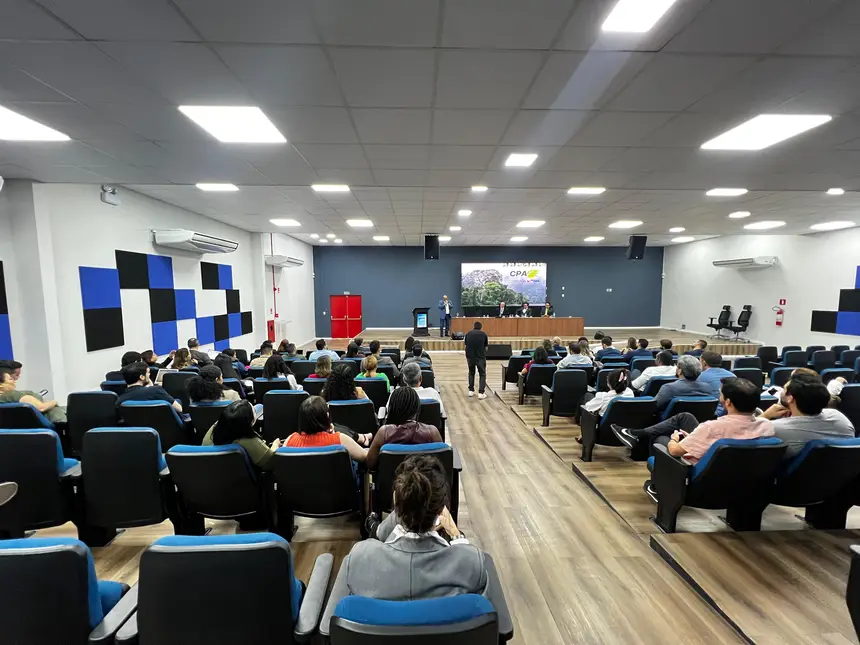
“We are delivering a concrete solution that transforms forest conservation into an environmental and economic asset. With this, Pará positions itself as a national and international reference in climate and environmental governance, especially on the path to COP30 in Belém,” reinforced Nilson Pinto.
100% digital process and electronic certificate
Access to the CPA is done entirely digitally, through the official Ideflor-Bio website, with the issuance of an electronic certificate that attests to the property's link to legal compensation. The document allows the producer to advance in the regularization processes with Semas and facilitates access to rural credit, sustainable markets, and property valuation.
In addition to Nilson Pinto, the panel included the president of the Institute of Lands of Pará (Iterpa), Bruno Kono, the deputy secretary of Semas, Rodolpho Bastos, and the judge of the Court of Justice of Pará (TJPA), Alex Centeno.


